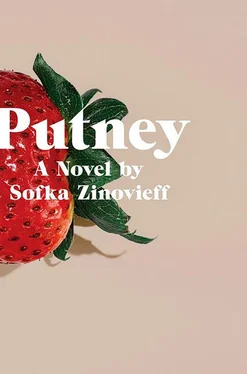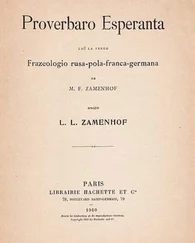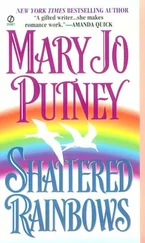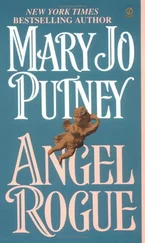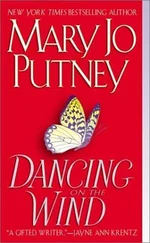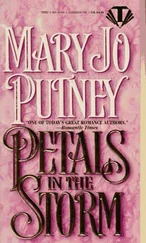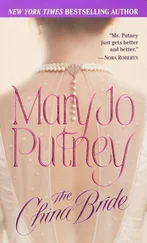‘So how’ve you been?’ Jane was itching to continue her campaign but knew she must go gently.
‘Oh really well, but there’s such a lot I want to talk to you about. Actually, since before I went. I’ve been waiting almost a month!’
‘Sounds a great gig, though, working in the Greek islands!’
‘Yeah, it’s a nice perk. I was basically just checking on a few clients and villa owners on Zante, Cephalonia and Paxos. So the rest was holidays. And who’d want to be in London in August when it’s like this? It’s like living in a swamp.’
‘And Libby? I was hoping to finally meet her this time.’
‘Yes, you will! She’s here, in her room. I can’t believe it’s taken so long. She went out to stay with Sam before I left, and then we met up just before coming home. I’ve hardly seen her for six weeks!’
Her smile was not quite convincing, thought Jane. It must be especially hard to let go of your baby as a single mother. She didn’t know whether she could have brought up the boys without Michael. And it would have been unbearable when they left. Still, Daphne looked marvellous. Her feet were bare and she’d twisted her hair up on her head with a pencil. It appeared effortless – beauty as natural as a bird’s plumage.
‘Like a cuppa now or shall we go for a walk first?’ Daphne examined the greyness outside. It had been raining all morning and now the afternoon was oppressively humid. ‘The charms of an English summer… Or we could go and see a film. I love a weekend matinee. What do you feel like, Janey?’
Jane was unable to pinpoint what she felt like. She wanted to talk, to persuade and guide Daphne, but she didn’t want to be confronted by the hanging with its brutal ability to go straight to her gut. The living room was still in a horrible state, and littered with piles of rags, ribbons and what looked like actual rubbish. In fact the whole flat was verging on somewhere social services might get called to if the owner wasn’t a middle-class, well-spoken person. And yet she still felt at a disadvantage with her old friend – a direct line to emotions she should have left behind with her teens. Too big, too pale, her feet pig-pink and cold in their practical open sandals. Her short, blonde hair seemed dull and conventional and the rectangular glasses that had felt like a good decision, a relief after all the fuss of contact lenses over the last thirty years, now made her feel like the dowdy, bespectacled girl of thirteen. How odd that you could go through so much in a life and be transported back to youth in a flash.
‘Maybe a walk? Then we could see how we feel after that?’
‘Perfect. We could walk across the bridge. Revisit our old haunts, maybe go to Wandsworth Park. I’ll just go and get Liberty so you can meet her.’
Daphne returned with a willowy, delicate-featured girl who had evidently inherited the Californian gene more than the Greek. Like her mother, though, she was lovely, her skin glowing and golden. Perhaps there was something of both Ellie and Ed in her, Jane thought.
‘Hi, Liberty. I’m Jane. Finally! I’m so pleased to meet you.’ She stood somewhat awkwardly, not knowing if she should shake her hand or kiss her, but Liberty came over and gave a dispassionate, one-armed hug.
‘Hi. Mum said you were friends when you were my age.’
‘Yes, we go back a very long way.’ Jane laughed.
‘Yes,’ agreed Daphne. ‘And, Libby, you’ll be lucky if you have a wonderful friend from school after so long. Imagine if you still know Paige when you’re fifty!’
‘So, did you have fun in Greece?’ Jane sensed it was an irritating question as it emerged.
‘Yes.’ Liberty hesitated. ‘But it was intense. I was helping my dad with the refugees a lot of the time. It was so hot in Athens. And there are so many people crossing over from Turkey. Thousands arriving off the boats in Athens. It feels biblical.’ Jane guessed Libby was quoting someone else. She felt put in her place for asking about fun.
‘Good for you. That’s amazing. The world needs young people who are looking outwards, doing something, following their principles.’
‘Thanks.’ The girl looked solemn. ‘If I was older, I’d go and stay there and work full-time. Everything else looks a bit pointless in comparison.’
‘Libby’s so different to me – how I was,’ said Daphne. ‘I don’t mean physically, though that’s pretty obvious. She’s so clever and organised and knows what she’s doing. I don’t think I’ll ever be that disciplined.’
‘Oh you were pretty clever,’ said Jane. ‘About lots of things.’ She laughed, wondering whether Daphne would interpret this as a dig at her patchy academic abilities or as a reference to her judgement in other matters.
‘So, Libby, are you artistic like your mum?’
‘No, I’m hopeless at art.’ The girl smiled, tolerating the adult questioning the child in this manner. ‘At school I like biology best. And sports. Especially running.’
‘Snap!’ said Jane. ‘That’s exactly like me. Did you know I work in a lab? I do medical research. And I love running.’
‘Wow, I didn’t know.’
‘Yes, if you ever wanted to come and see my lab, you’d be more than welcome. I’d love to show you around.’
‘Cool. Thank you. That’d be great.’
Libby turned to her mother. ‘OK, I’m going round to Paige’s now. See you later.’
‘Like what time?’ Jane noticed an infinitesimal stiffening in Daphne’s face.
‘Dunno. I’ll text you, OK?’
‘Rough idea?’
‘Like nine thirty and you can meet me at the Tube?’
‘OK, deal. Keep me posted.’
The walk took them over the train-bridge and Daphne laughed as they climbed the steps. ‘Returning to the scene of the crime,’ she puffed. As girls, they’d run up and down two at a time, and Daphne’s movements were still more expansive than her size suggested – a kind of bodily largesse. ‘We’d never have believed that we could be this old, or that we’d be back here again after so long.’
‘I used to come across this bridge from the Tube station and hear opera blaring out from your house. And do you remember when Edmund got the peacock? I’d try to spot it down in the garden when I was approaching. What was it called?’
‘Nietzsche.’ Daphne giggled. ‘Nietzsche the Screecher. Ed could never resist something shiny and colourful.’
‘I loved that about your place. It was like a fairground, with the strings of coloured lights and flags in the trees, and then the different animals that came and went. Didn’t he buy a collection of oriental ducks at one point?’
‘Yes, and they all got ill and died. It was horrible. Chaos, our household, wasn’t it?’
The two women reached the ornate cast-iron gate to Daphne’s old house and paused, peering in like time travellers. Number 7 had altered – not merely shrunken like most locations remembered from childhood and revisited. The overgrown privet hedge and scruffy patch of grass were gone and the facade was now painted expensive grey, and fronted by neatly planted herb beds and antique brick paths. Jane said, ‘So if we came out of the front door aged fourteen or fifteen, would we be wearing flowery Laura Ashley dresses, punk trousers full of zips, or Victorian knickerbockers with Oxfam leopard skin?’ Daphne’s outfits had often looked as though she had been playing with a dressing-up chest. You couldn’t predict who she’d be.
‘I wish we had more photographs,’ said Daphne. ‘Nobody took them much in those days, did they?’
‘No. Not like now, where the photograph becomes the event. We have to take a selfie to know we actually exist.’ She wished she had taken more photographs. Perhaps she could have captured evidence about what Ralph did – that steady grooming that was heading so inevitably towards his goal.
Читать дальше
